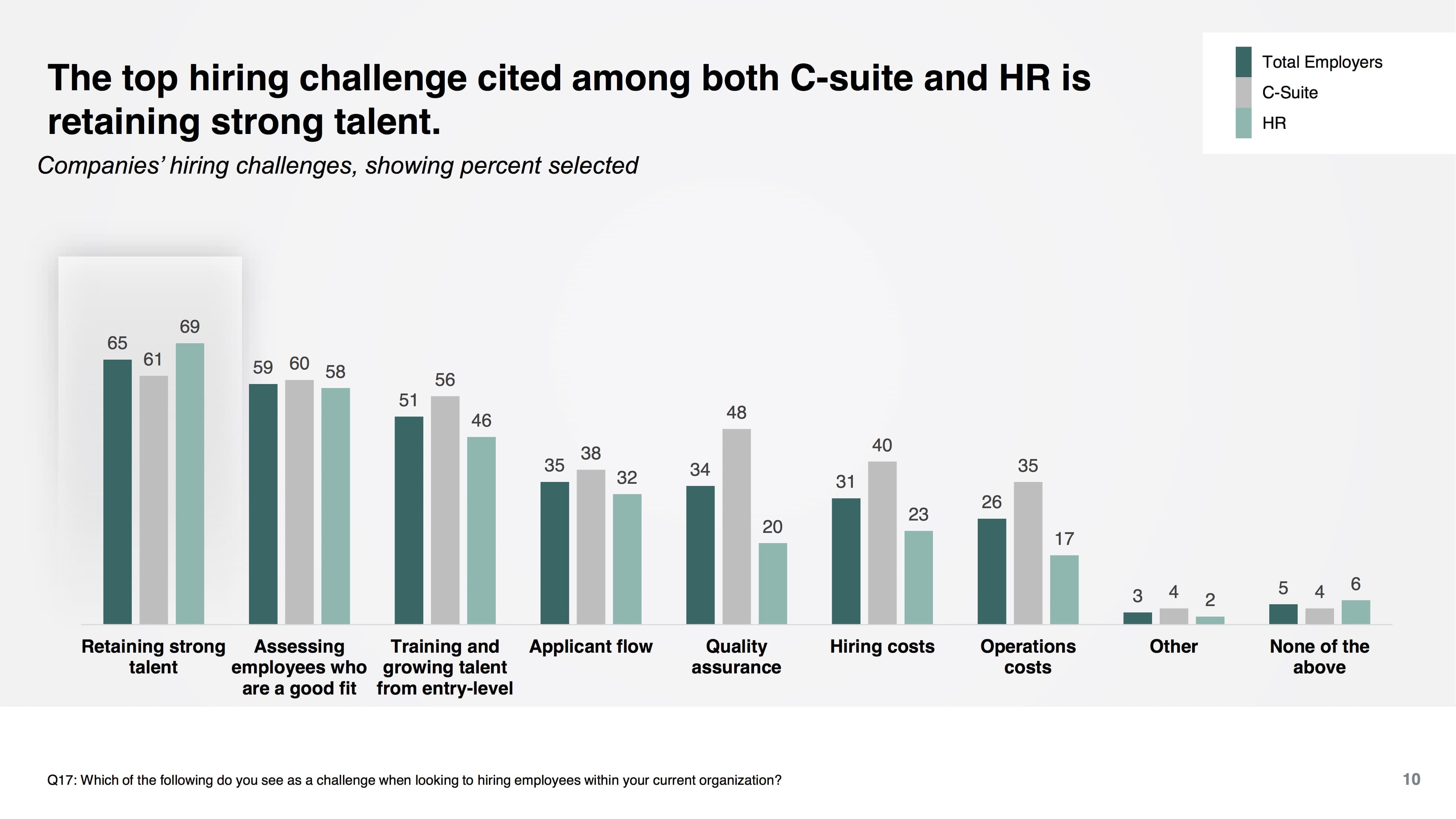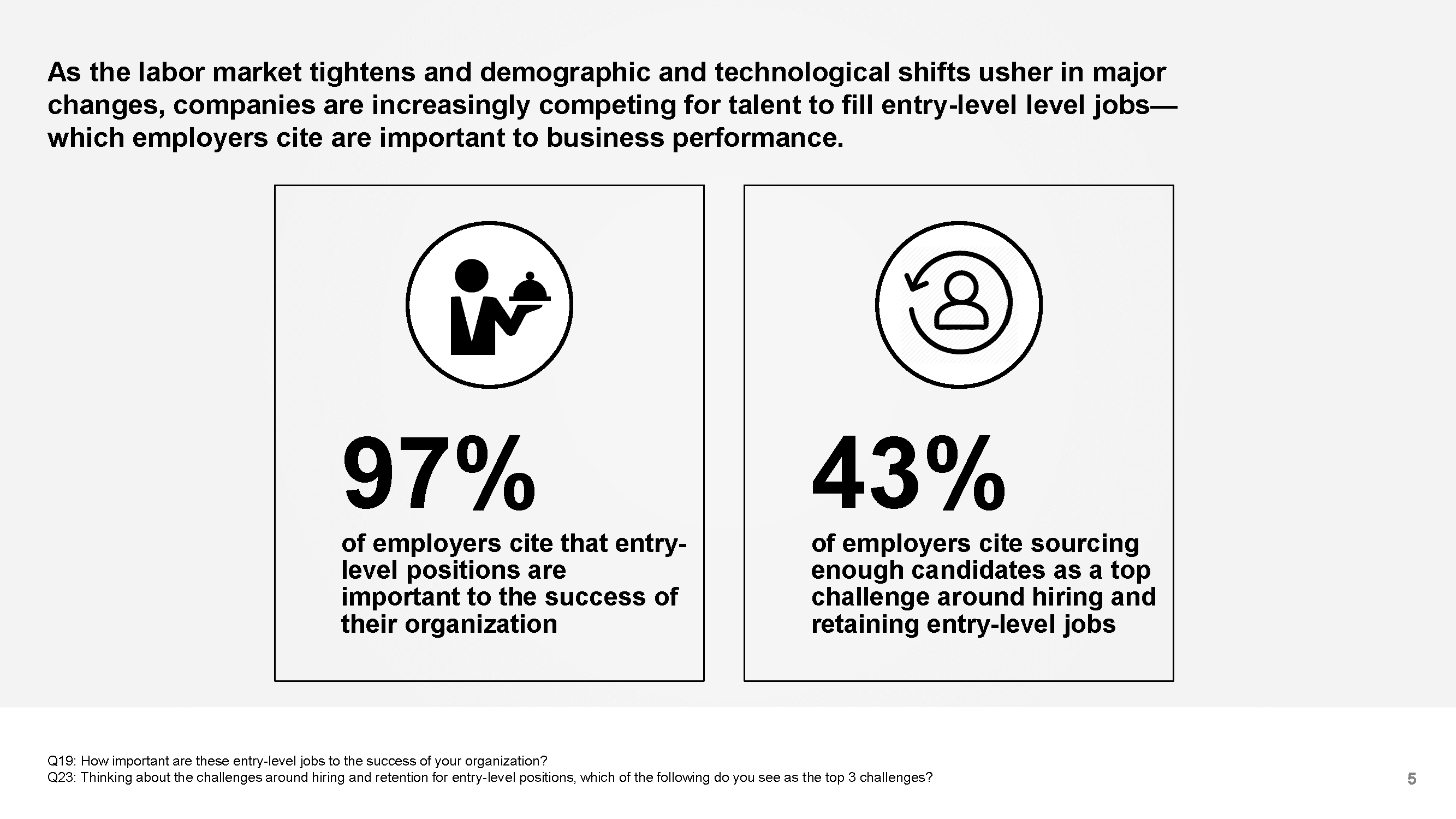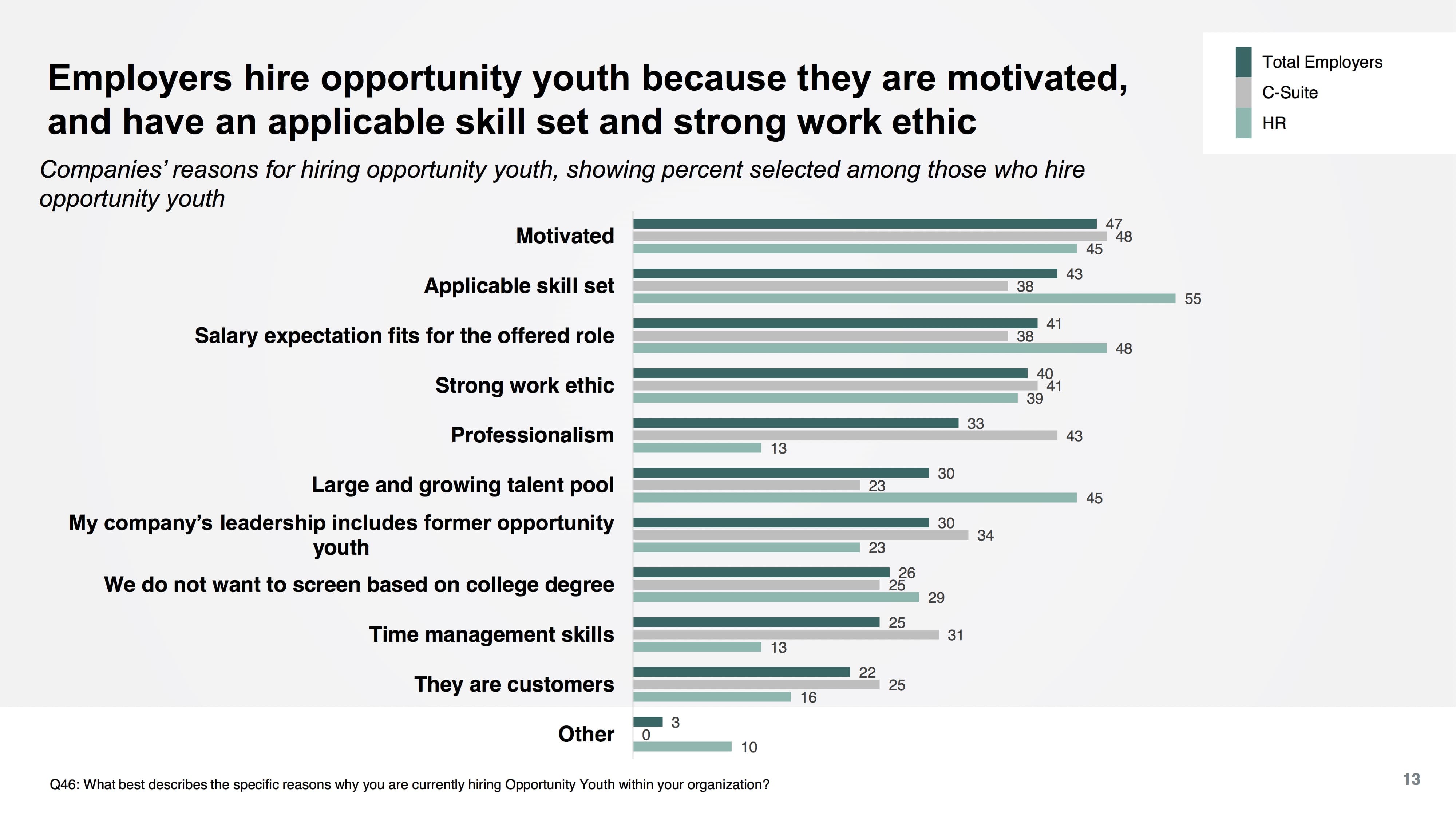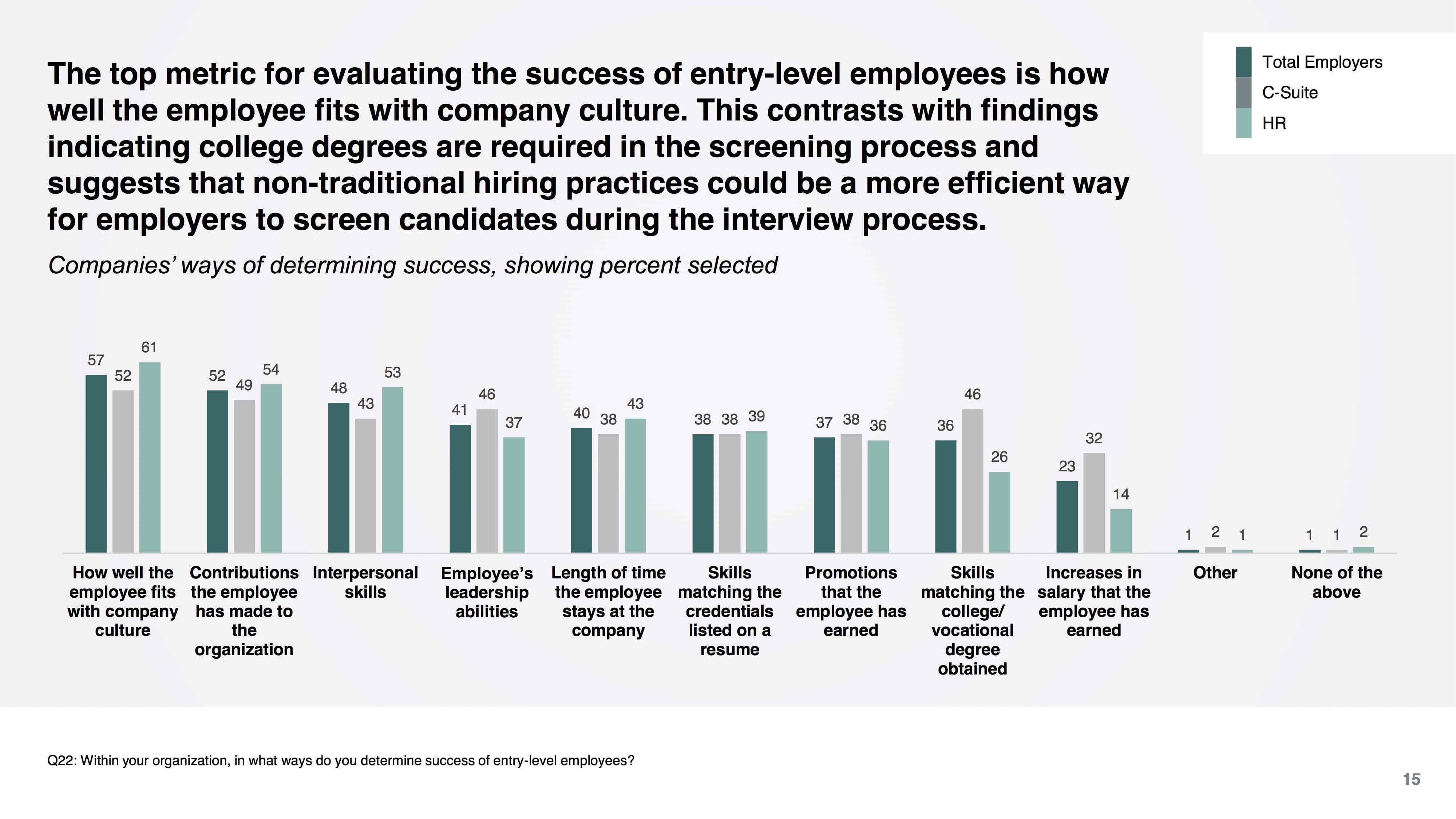This is a critical moment for unemployed youth in America. As the labor market tightens and demographic and technological shifts usher in major changes in the workforce, companies are increasingly competing for talent to fill entry-level jobs.
Despite this demand, the unemployment rate for younger workers, at 11 percent, remains more than double the national average. What’s worse, there are more than 5.5 million opportunity youth—young people ages 18-24 who are neither in school nor at work—in America.
Today, The Rockefeller Foundation and grantee Edelman released a new report, “The State of Entry-Level Employment in the United States,” which uncovers these entry-level hiring challenges for employers and youth; reveals perceptions about entry-level jobs; and identifies solutions, like impact hiring, to address these challenges. Impact hiring, in particular, provides employers with new approaches to talent practices—specifically related to recruitment, hiring, and retention—that address their entry-level talent challenges and improve employment outcomes for those who face barriers to opportunity, especially disadvantaged youth.
Four key findings from the research include:
Outdated hiring practices impede employers’ ability to find and keep the right entry-level talent.
The top hiring challenge cited among both C-suite and human resource professionals is retaining strong talent (61 percent and 69 percent, respectively), and nearly half of employers (43 percent) agree that sourcing enough candidates is a top challenge when filling entry-level jobs. However, current talent practices, such as using a college degree as a primary screening criteria for many entry-level jobs, are hindering employers’ abilities to find and keep the right candidates. In perpetuating these harmful practices, many employers are overlooking opportunity youth—a large pool of untapped talent that may be well-suited for many of a company’s entry-level jobs.
Screening for college degrees denies youth the opportunity to build skills on the job.
Research findings show that half (49 percent) of employed recent college graduates aren’t using the skills they learned in college, but rather learning skills on the job (90 percent). In spite of this, opportunity youth aren’t given the same opportunities for skill-building because they lack college degrees—which data show are not highly predictive of success. Therefore, screening for college degrees in the hiring process denies opportunity youth the ability to get a foot in the door, build skills on the job, and create more meaningful opportunities for life-long career success. Fortunately, some traditionally “white collar” employers, like Ernst & Young, have dropped the college education requirement to increase the diversity of their talent pipeline.
The top metric for evaluating the success of entry-level employees is how well the employee fits with company culture (57 percent), which can be a subjective and unscientific way of screening candidates.
For this reason, most employers (69 percent) use college degrees as a requirement in the screening process—a proxy for general skills because employers have traditionally lacked more sophisticated methods to predict candidates’ career success. New forms of talent assessments, such as behavioral algorithms, could provide a more efficient and objective way for employers to find candidates who are a good fit from a broader applicant pool during the interview process. Findings from a study by The Rockefeller Foundation, Incandescent, and Knack, “Impact Hiring: How Data Will Transform Youth Employment,” indicate that predictive analytics and game-based assessments are the new frontier in entry-level hiring.
There is a disconnect between the benefits employers think will matter to younger workers and those that truly matter to them.
Most employers deliver on perks such as health care (73 percent) and retirement plans (70 percent). While these protections are certainly important, opportunity youth consider benefits such as a flexible schedule (91 percent) and adequate child care (54 percent) most important to enable them to stay in a job. To fully tap into the talent pool of opportunity youth, companies must recognize that opportunity youth have a different set of needs and priorities when looking for a job and adapt their offerings accordingly. This may mean that employers aren’t currently reaching opportunity youth with their open job opportunities and that they aren’t marketing (and developing) their company culture in a way that is attractive to and inclusive of opportunity youth. Chipotle is one employer that is marketing themselves to potential employees in such a way. In partnering with Guild, an organization that helps companies reimagine traditional tuition assistance to develop and retain top talent, the company is leveraging financial educational assistance as a strategic employee benefit.
The results of this survey underscore the real opportunity that employers have to strengthen their talent pipelines and improve employment outcomes by broadening and diversifying their applicant pool. We hope this research will encourage employers to take a closer look at some of their existing HR practices and explore how impact hiring may help expand entry-level employment opportunities for underserved populations and deliver tangible business value.
This study was conducted by the research firm Edelman Intelligence with support from The Rockefeller Foundation. Data was collected using an online survey among 1,200 people in the U.S., including C-suite members, human resource professionals, recent college graduates, and opportunity youth. More than 1,000 youth and 200 employers participated in the study.




Leave a comment